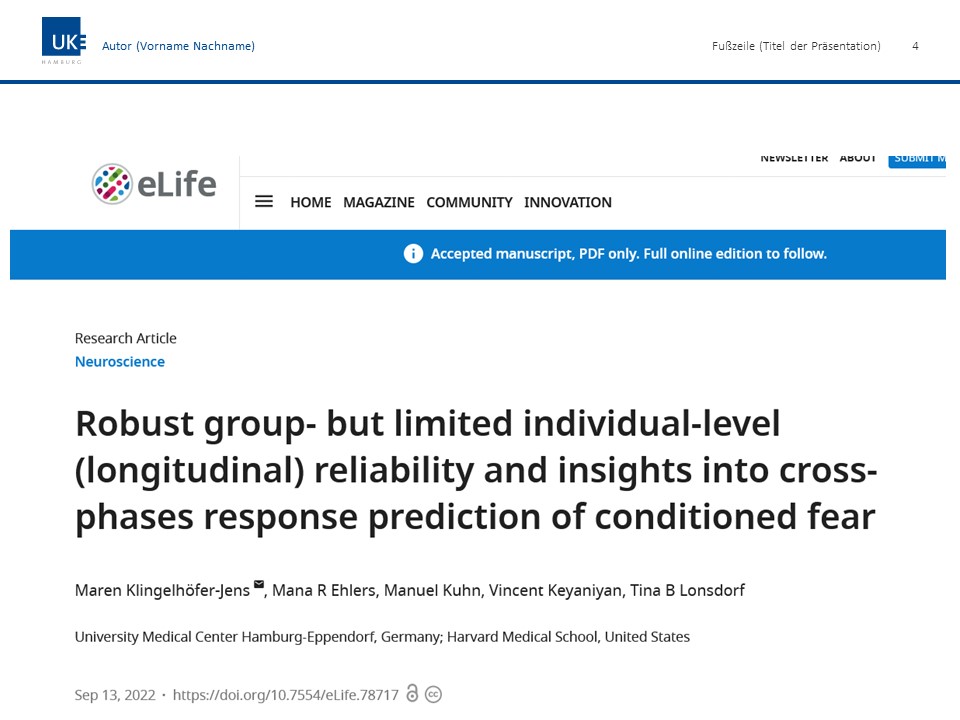
A warm welcome to Julia!

A warm welcome to Julia Ruge who joines the team as a PhD student in the DFG funded research training group “Emotional Learning and Memory”. She will be working on project A1. Check out the website https://www.emotionalmemory.de/ and learn more about the exciting projects!
NEW Preprint
Introducing a curated collection of 103 datasets in the field of fear conditioning research (in humans) as well as simple steps for F.A.I.R. data sharing tailored to field specific challenges!
We identified 103 publicly available datasets in the field and provide an overview of the status quo.
Data sharing is becoming increasingly used since 2018 in the field, so now is the time to recapitulate their (re-)usefulness for secondary use.We also provide an overview of key meta-data of the 103 datasets which are included in the curated collection. We think, this is a great resource applicable to numberous use cases.
This work allowed us to extract general and field specific challenges and immediate solutions on how to improve (re-) usability of data in our field. We provide a detailed table with simple steps including relevant references and links to additional resources.
As data sharing is becoming increasingly “popular”, we highlight that we should now focus on the structure and re-usability (the R in F.A.I.R) to maximize the benefit for the scientific community and general public. This requires field-specific considerations as provided here.
Check out the preprint with Mana!
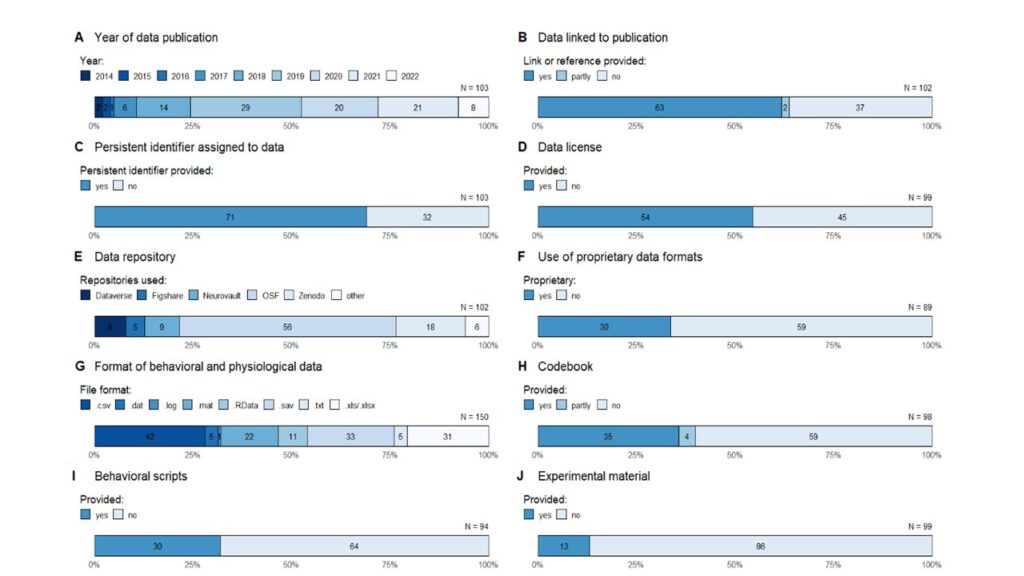
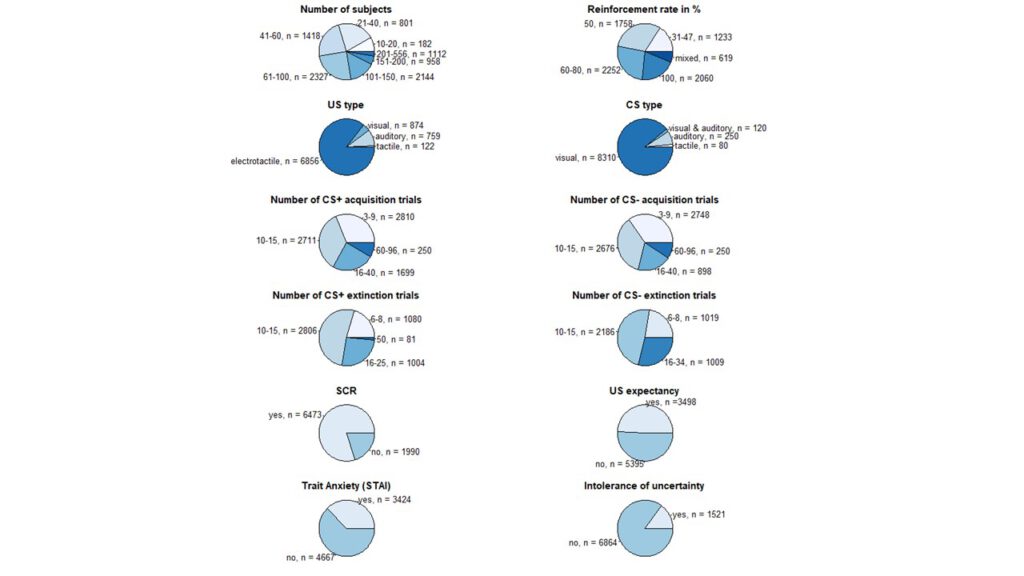
New preprint! How does childhood maltreatment get “under your skin”?
Years of data collection and finally a preprint! We investigate the impact of childhood maltreatment (CA) and recent adversity (RA) on pysiological responding during affective processing in a large sample of 586 participants! Preprint: https://psyarxiv.com/wjeyg/! Congratulations to Alina Koppold and Alex Kastrinogiannis to their first paper and also to former lab member Manuel Kuhn!
Bonus: Manuscript comes with open data and code and is written reproducibly in R markdown with the papaja package! This means you can do the magic and generate the manuscript from the data and code we provide with a single “knit”.
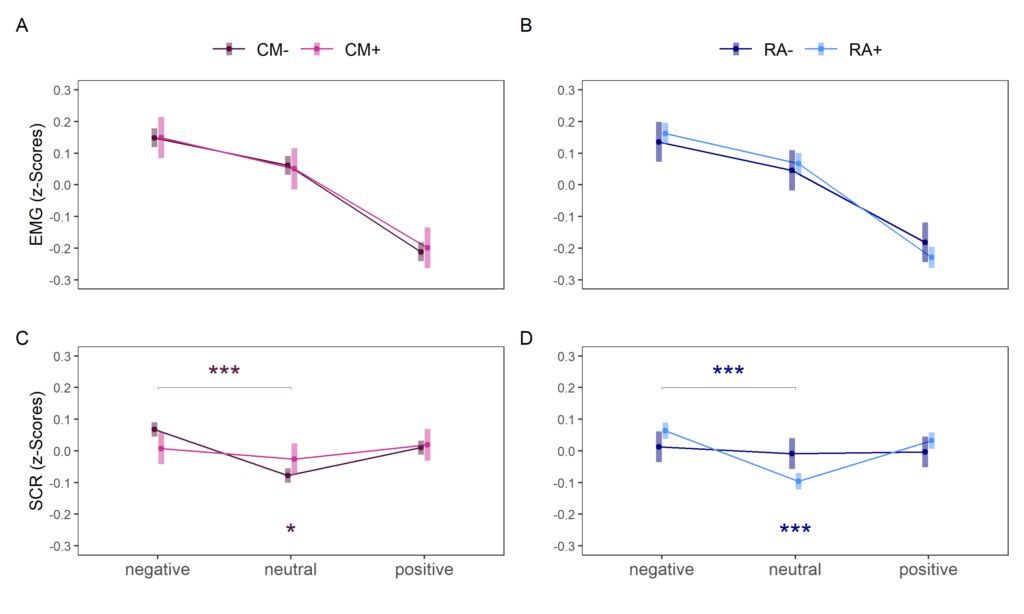
We also compare the agreement bewteen two established questionnaires to assess childhood maltreatment.
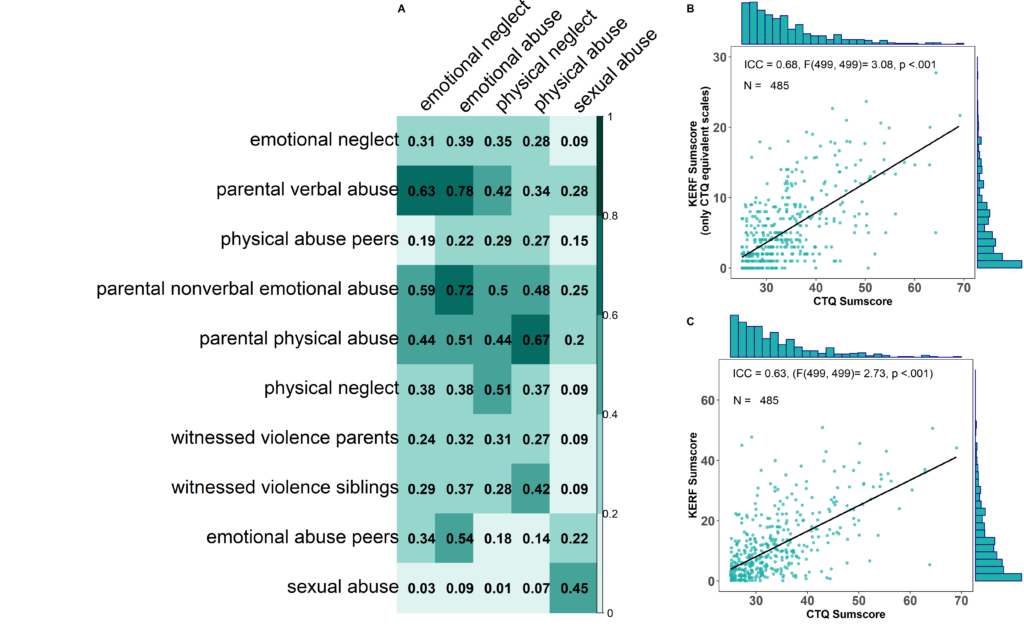
Ketchup
The lab had a litte COVID-related gap with lots of stuff being delayed for a lot of reasons including (massive) delays in data collection and increased care work for team members with small kids which let to substantial delays in working on revisions.
Now, we experience something that the PhD advisor of Tina’s husband referred to the “ketchup effect” (when you press the ketchup bottle for a long time and nothing comes out and then everything at once). Only this is about paper publications and not ketchup.
Our “the magnificent three” multiverse papers are now all published.
(1) “Multiverse analyses in fear conditioning research” (+ Rpackage) published in BRAT with Anna Gerlicher, Maren Klingelhöfer-Jens and Angelos Krypotos & Tina
(2) “Navigating the manyverse of skin conductance response quantification approaches – A direct comparison of trough-to-peak, baseline correction, and model-based approaches in Ledalab and PsPM” by former post-doc Manuel Kuhn, Anna Gerlicher and Tina has been published in Psychphysiology
(3) “A data multiverse analysis investigating non-model based SCR quantification approaches” by former post-doc Rachel Sjouwerman, Sabrina Ilius, Manuel Kuhn and Tina has been accepted for publication in Psychophysiology.
May the future be multiverse!
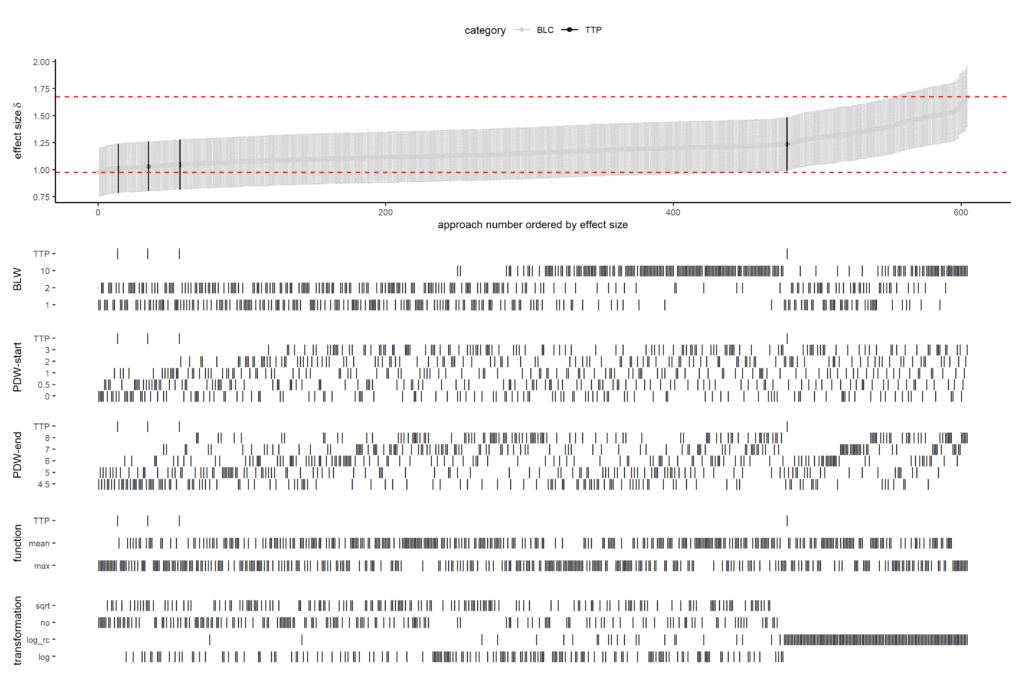
New preprint on individual-level & group level reliability
In this pre-print by Maren Klingelhöfer Jens, Mana Ehlers, Vincent Keynayian (BA student) and former lab member Manuel Kuhn, we target the important question of individual and group level reliability of common measures in fear conditioning reserach: skin conductance, ratings and BOLD fMRI. Bottom line: group level stability is fine, individual-level stability did not make us very happy.
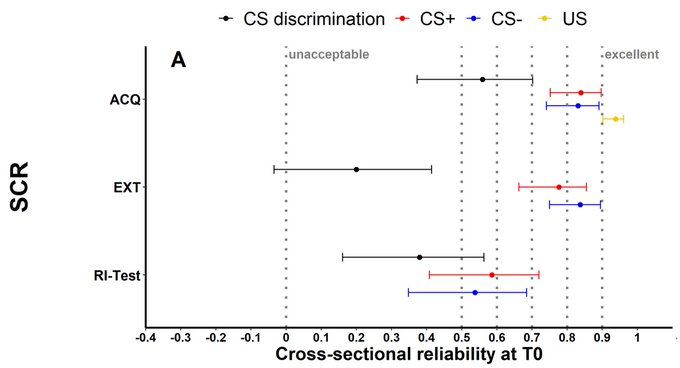
We also ask the related question to what extend responding in preceding experimental phases predicts responding in later experimental phases – a highly relevant question for clinical translation! Of course we do that multiverse-style!
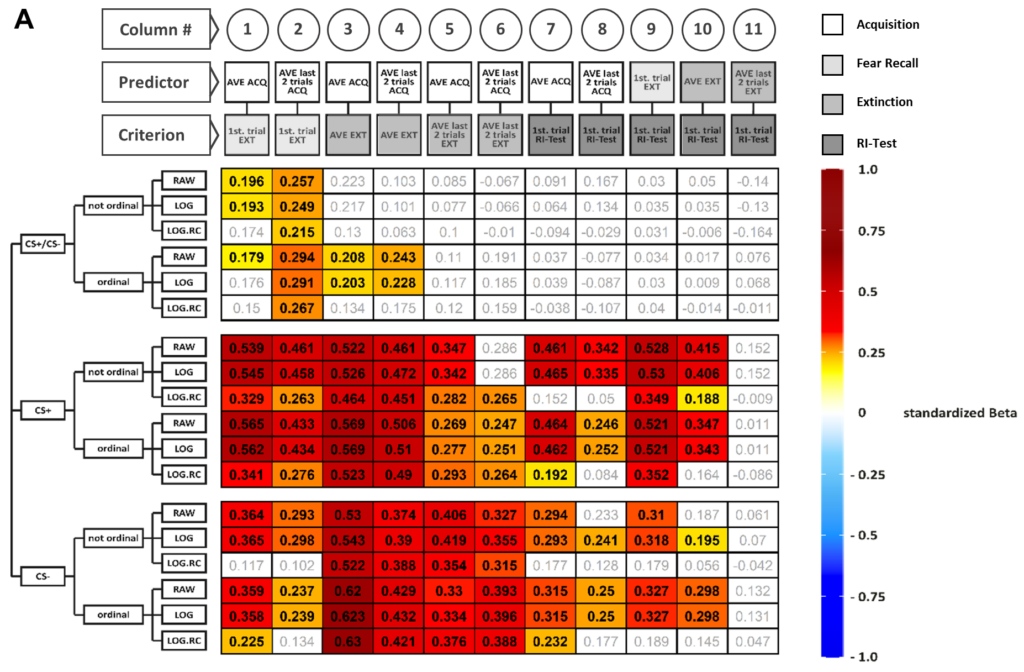
Bonus: Open data and code and you can do the magic to generate the manuscript from the data and code we provide! This is the lab’s 2nd manuscript written in a fully reproducibly way in R markdown! Well done team!
PhD position available from July 1st 2022
We are excited to announce that the lab has an open PhD position starting from july 1st 2022. The position is part of the brand new research training group “Emotional Learning and Memory” funded by the German Research Foundatation (DFG). More information can be found here.
The project aims to investigate how childhood adversity gets ‚under the skin‘ by
investigating the neuro-physiological mechanisms underlying response
differences to signals of threat and safety in individuals exposed and
not exposed to early life adversity. To this end, we use state of the
art functional and structural imaging in combination with defensive
startle responding, freezing-like behavior in humans and measures of physiological arousal and endocrine
stress responding (cortisol in hair and saliva) in a fear conditionig
and generalization paradigm.
Applications open until april 1st! Looking forward!
Open science glossary!
The lab contributed to a glossary of open science terms, now published in Nat Hum Behav! Make sure to check it out https://www.nature.com/articles/s41562-021-01269-4 also on the FORRT website where it lives live.
New preprint: Systematically investigating the role of context on effect replicability in reinstatement of fear in humans
New preprint and fawewell present from and for Rachel! A paper that has been in the making for nearly as long as she was in the lab (5 years!). We ystematically investigate the role of context on reinstatement-induced return of fear in a human differential fear conditioning paradigm using subjective and psychophysiological measures in a largesample (N=212) including reinstatement and control groups using Bayesian mixed models. Preprint here https://psyarxiv.com/65njk/.
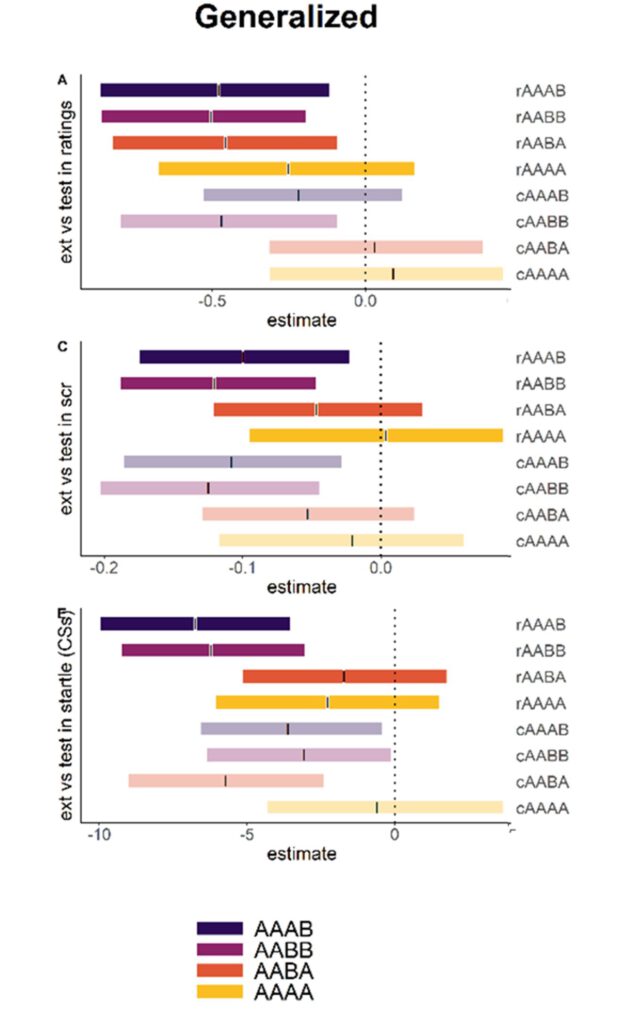
Symposium on Open and Reproducible Science in Psychphysiology – Challenges and Emering Solutions
Tina chaired a symposium at the (virtual) annual meeting of the Society for Psychophysiology (SPR) which showcased recent examples tackling the ‘replicability’ of ‘Open and Reproducible’ science practices in psychophysiological research. Three talks (Peter Clayson, Tampa, US; Andreas Keil, Gainsville, US; Manuel Kuhn, Boston, US) focused on multiverse analyses in EEG and skin conductance, one talk focused on an inventory of open data (Tina) and one (Michael Larsson) on the open access advantage by using electrophysiological research as a case example. You can find the video of Tina virtual talk below.
